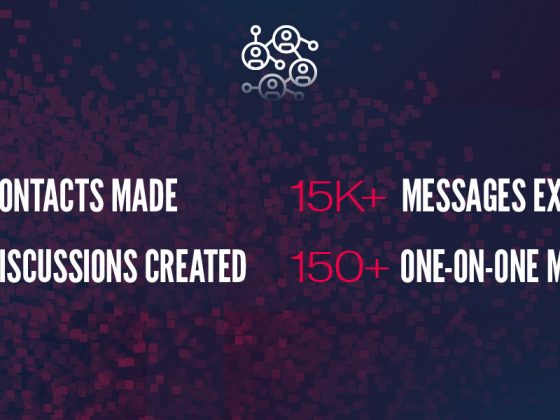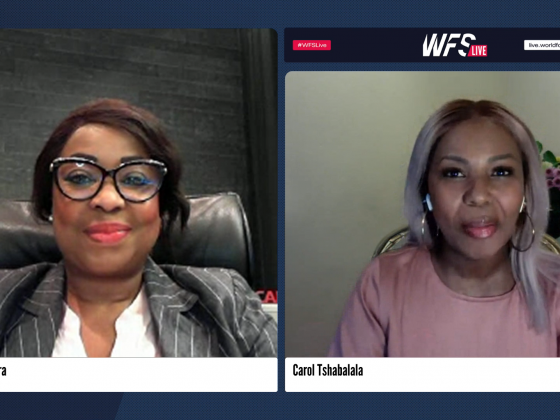The coronavirus pandemic has completely shaken up the football industry, with some leagues having to be cancelled and with others only returning without fans. LaLiga falls into the latter category, having returned on June 11th to complete the final 11 rounds of the campaign behind closed doors.
There have been significant financial losses for those involved in Spanish football, but LaLiga president Javier Tebas does not believe that there will be serious long-term effects from Covid-19, assuming a vaccine can be found and distributed. Speaking on the opening day of WFS Live, Powered by Ronaldo, Tebas mapped out a timeline for football’s gradual return to complete normality.
“I think it will depend on the autonomous communities,” he said when asked when we should expect fans back in Spanish stadiums by interviewer Alfredo Matilla of Diario AS. “We’ll see if it happens at the end of this season or at the start of next season. It’ll be something awkward and in percentages. I think 30% of the stadium’s capacity is the maximum that there will be. And it’ll be awkward because there will be a need to have people entering early and they’ll need to be told where to sit and at what hour they can go.”
Despite the inconveniences that will come with the matchday experience in times of Covid-19, Tebas still expects supporters will want to go. He said: “It will be more uncomfortable to go to matches. But, I think that many fans will go at this 30% level to see their team, even with this awkwardness. Until we have a vaccine that allows us to all go together without any problems.”
Once a vaccine is ready, Tebas is convinced that football can completely return to normal without lingering aftereffects from the crisis. On that, he told the WFS Live audience: “I think that football will return to what football was. Once we find a vaccine, maybe then it’ll take another year. But, it will go back to what it was, with fans in the stadiums, with the stadiums full, with the passion for football, with the same audiovisual broadcasts. The economic values will once again be where they were. It won’t change a lot. It’ll change what we’re doing right now, but we’ll return to what we were before and I have no doubt about that. There won’t be an economic shrinking within three years. I’m convinced that within three seasons, or maybe a little less in my opinion, that we’ll be back in the kind of situation that we had been in.”
Despite his optimism for the long-term health of the football industry, Tebas does believe the 2020 summer transfer window will be quite different to those of previous years. The LaLiga president stated: “There will be some transfers, but those which each club can manage economically. But, big signings paid in money, we’re not going to see that. One of 100 million euros is impossible. And those above 50 million euros, we’ll be able to count on the fingers of your hands and mine.”
Tebas spoke on the opening day of WFS Live, which is running from Monday July 6th to Friday July 10th. It is still possible to buy a ticket here, with all net proceeds to be donated to Fundação Fenômenos and the Common Goal Covid-19 Response Fund.
A selection of Tebas’ quotes from his WFS Live panel
- On how LaLiga’s audiovisual rights are worth the same as before to broadcasters:
“I believe that the audiovisual value won’t be affected immediately. Everyone is saying there’s a need to reduce the fees and what is being earned, but in my opinion the audiovisual and entertainment sector is one of those that has come out reinforced from this crisis. If we look at Netflix or HBO, these companies have seen their subscriber numbers go up a lot. What can be affected is the money that consumers have, but in general I don’t see there being a major effect that can then affect us.”
- On the potential damage had the season been cancelled like in France:
“Only up to June 30th of the 2019/20 season, it would have to been something over 1,000 million euros or 1,100 million euros in losses, also counting what teams would have lost in the Champions League and everything. By no longer bringing in revenues, it would have generated a problem in terms of losses because we’re not a sector where the profit margins are very large.”
- On the need for economic control measures to be maintained or perhaps made stricter:
“In Europe there has been an important debate that we’ve been involved in about UEFA’s economic control, where some big clubs wanted things to be laxer. We and the Bundesliga insisted that it can’t become laxer. Quite the opposite. There’s still a need to be more rigorous so that there isn’t a major difference between the revenues you bring in, which have gone down because of COVID, and the spending, especially that on wages and others you have in the club.”
- On coronavirus’ effect on the European Super League project:
“What this league has shown us, especially for UEFA, is that strong national leagues together can organize the calendar. Together we’ve tried to ensure the audiovisual rights don’t lose value. We’ve realized that together we can do things a lot better. That UEFA and the big clubs should not go on their own. I think that has weakened the Super League project quite a lot because many clubs have realized that it was very important to maintain their national market and to save it during this situation.”
- On whether he’d prefer Xavi or Neymar to return to Barcelona:
“For Messi to stay at Barcelona.”


